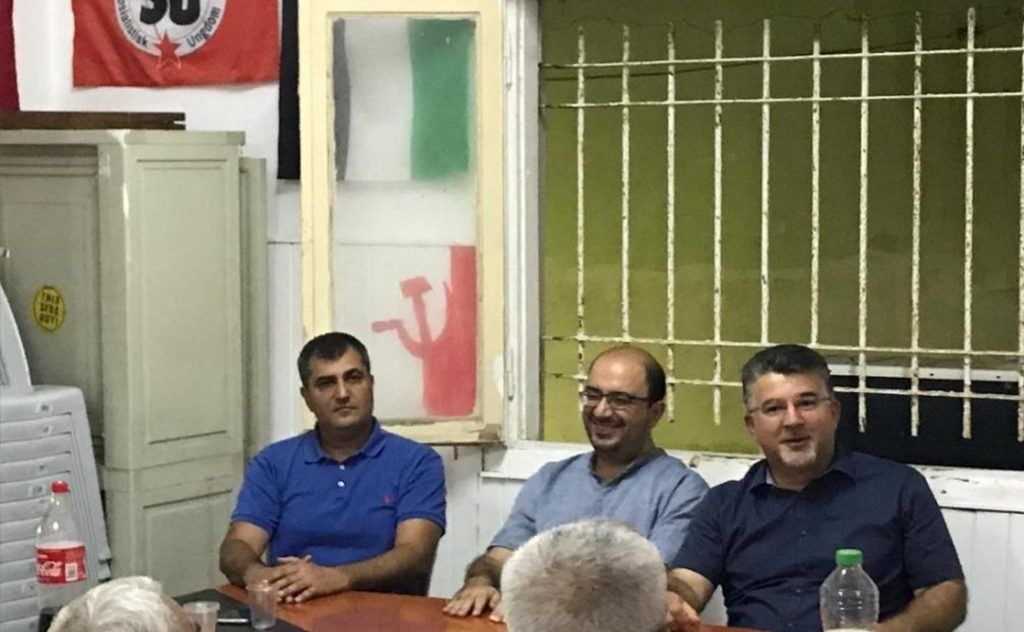The Joint List launched its campaign in Jaffa towards Israel’s general elections on September 17, with veteran Knesset Member (MK) Yousef Jabareen and prominent Jaffa activist Sami Abu Shehadeh addressing an audience in Jaffa on Tuesday evening, August 6. Jabareen and Abu Shehadeh respectively hold the tenth and thirteenth slots on the Joint List slate.
Hadash and Balad, two of the political parties, along with Ta’al and Ra’am, forming the renewed Joint List, are long-time rivals within the Arab-Palestinian community in Israel. However, as Jabareen stressed, holding the first meeting for the renewed Joint List in the CPI-Hadash club in the historic city’s Ajami neighborhood is “very symbolic in light of the fact that Jaffa faces local and national exclusion and various discriminatory policies in all areas of life”. The Hadash MK told MEMO: “Arab-Palestinian residents in Jaffa face double exclusion: by the Tel Aviv-Jaffa municipality, which ignores their needs and development rights; and by the central government, which discriminates against them as part of the Arab-Palestinian population.”

Two residents of Jaffa, Hadash Tel Aviv-Jaffa Municipal Council member Atty. Amir Badran (left), and Balad activist Sami Abu Shehadeh (center), candidate number 13 for the Joint List, along with Hadash MK Youssef Jabareen (right), from Umm al-Fahm, address the Joint List campaign launch meeting held in Jaffa on Tuesday evening, August 6. (Photo: Zu Haderech)
Tuesday evening’s meeting in Jaffa signaled the start of six weeks of intensive campaigning in a bid to capitalize on the opportunity presented by Israel’s do-over election, the second this year, after far-right Israeli PM Benjamin Netanyahu failed to form a ruling coalition. “The feeling is that we got another chance to better organize and unite our community towards increasing our political representation,” Jabareen explained, adding that “the stronger we are, the better we can serve the issues we represent: countering racist government policies, supporting our struggle in the field and in our outreach to the international community.”
At the time of the meeting, the latest polls had predicted that the Joint List could win 11 or 12 seats, one or two more than the 10 the two factions (Hadash-Ta’al and Ra’am Balad) won back in April when they ran separately. “We hope that with intensive campaigning during the next few weeks we can increase this to 13-14 seats,” Jabareen said, stressing that this is both “possible and doable.” For this reason, Jabareen noted, it can be very significant electorally that, for the first time ever, an Arab-Palestinian candidate from the historical region encompassing Jaffa, Ramla and Lydda, largely decimated ethnically during the 1948 war, will be running for the Knesset in a electable position on a slate representing the Arab-Palestinian community. (Following the depopulation of this region, once one of the main centers of life in pre-Nakba Palestine, Arab-Palestinian MKs have hailed from the Galilee in the north, Wadi Ara and the Triangle in the north-central and eastern-central parts of the state respectively, and from the Negev in the south.)
In the opinion of Balad’s Sami Abu Shehadeh, the significant drop in the Arab-Palestinian voter turnout for April’s election (less than 50%), was both individually and collectively a political act par excellance, as it expressed the desire of the public to punish the four parties that failed to reform the Joint List before the April elections. The parties understood the message, and have therefore reunited as a single list with the hope of achieving or evening bettering the results of 2015, when the Joint List garnered 13 seats in the 20th Knesset, making it the third largest parliamentary bloc in the Israel’s legislature.
Electoral Activity in Tel Aviv and the North
On last Sunday, August 4, an “Academic Committee in Support of the Joint List” was launched at the Tel Aviv headquarters of the Joint List, in the offices of the Communist Party of Israel (CPI) on Ahad Ha’am Street. Attending the meeting were Jewish and Arab lecturers from universities and colleges from around Israel.
A day earlier, on Saturday, August 3, a large meeting was convened in Shefa’mr (Shfaram) in the north of the country to discuss organizational strategy and tactics towards the September elections. Hundreds of members of Hadash and the CPI took part in the discussion.
Also in the north, the Druze Initiative Committee convened in village of Yarka on Wednesday, August 6, and decided to support the Joint List in the upcoming elections. Among those participating in the meeting were Hadash MK Ofer Cassif, former Secretary General of the CPI and author Muhammed Nafah, and the Secretary General of Hadash Mansour Dahamshe. The Druze Initiative Committee was founded in 1972 and is active in its support of Arab-Druze citizens of Israel who refuse to serve in the Israeli military.
Related:


